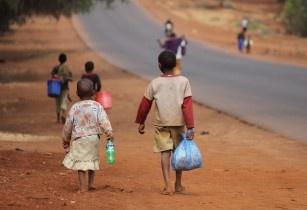Notwithstanding Tanzania’s strong growth performance in 2019, its economy will also suffer the effects of the COVID-19 pandemic and global economic crisis, according to a World Bank report
The World Bank’s 14th Tanzania Economic Update (TEU) forecasts economic growth to slow sharply in 2020, to 2.5 per cent from the 6.9 per cent growth the government reported in 2019, while recognising significant uncertainty as the pandemic continues to unfold.
The report recognises mitigating steps government has already taken, and this forecast assumes the authorities will take additional health and economic policy measures to mitigate negative impacts. However, there are downside risks for even slower growth if additional policy response is delayed or not well-targeted or the external environment does not markedly improve this year.
The TEU analyses the major transmission channels of the global crisis to the Tanzanian economy, including lower export demand, supply chain disruptions for domestic producers and suppressed private consumption. International travel bans and caution against contracting the virus have severely hurt the tourism sector, which had been one of the fastest-growing sectors in the economy. Tourism operators in the country are now forecasting revenue contractions of 80 percent or more this year, and only a mild recovery next year, conditional on how well global demand rebounds.
Beyond the macro numbers, the analysis says the pandemic is impacting lives and livelihoods. Simulations using the recent Household Budget Survey data released in December 2019 show that the crisis could push 500,000 more citizens below the poverty line, particularly those in urban settings relying on self-employment and informal/micro enterprises.
“The vulnerable people especially those employed in the informal economy are likely to bear the most severe impacts,” said Mara Warwick, World Bank country director for Tanzania, Malawi, Zambia and Zimbabwe. “They tend to live in congested settlements with limited access to basic services and they also lack adequate safety nets and have limited savings. Women and women-headed families will be more significantly impacted.”





















